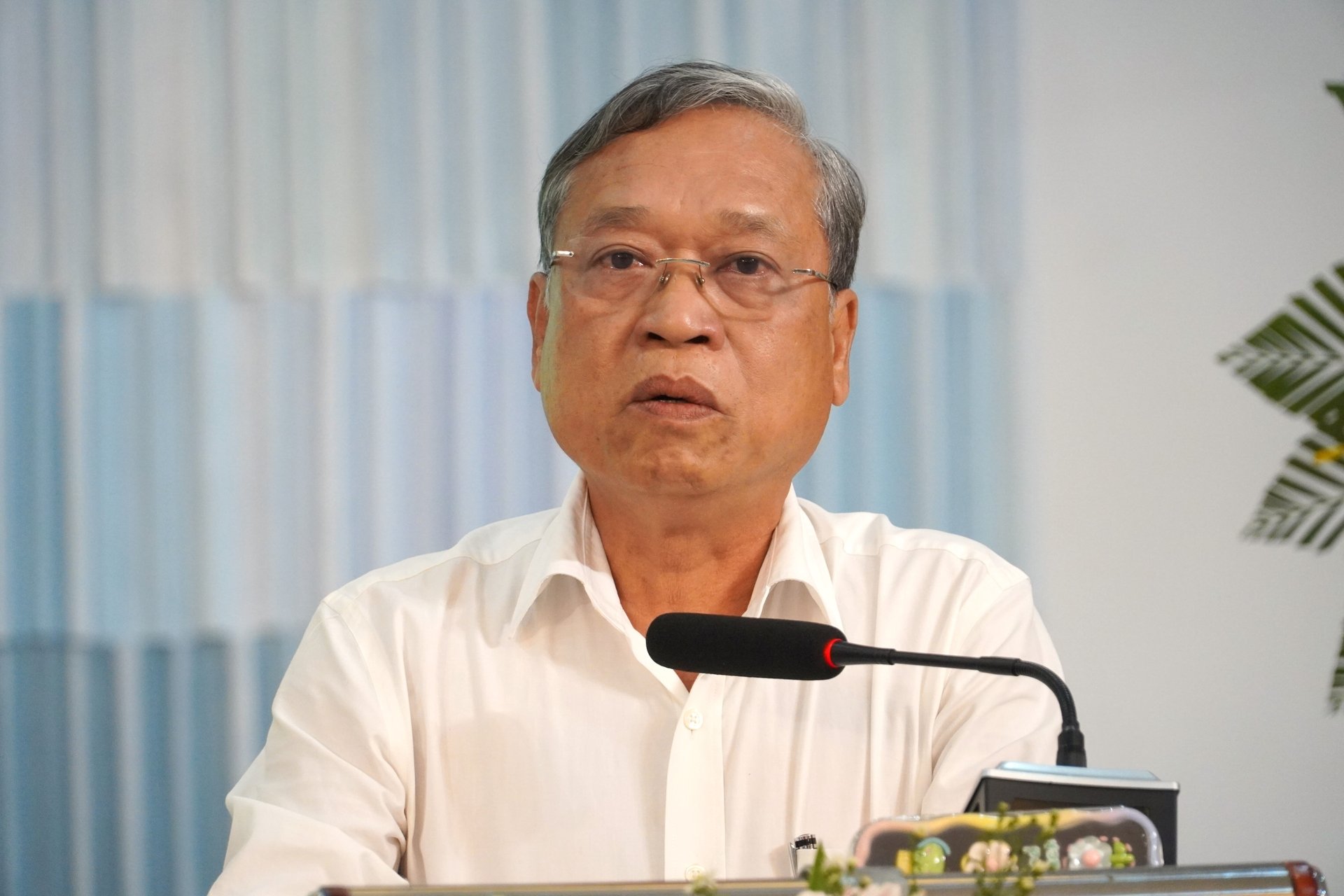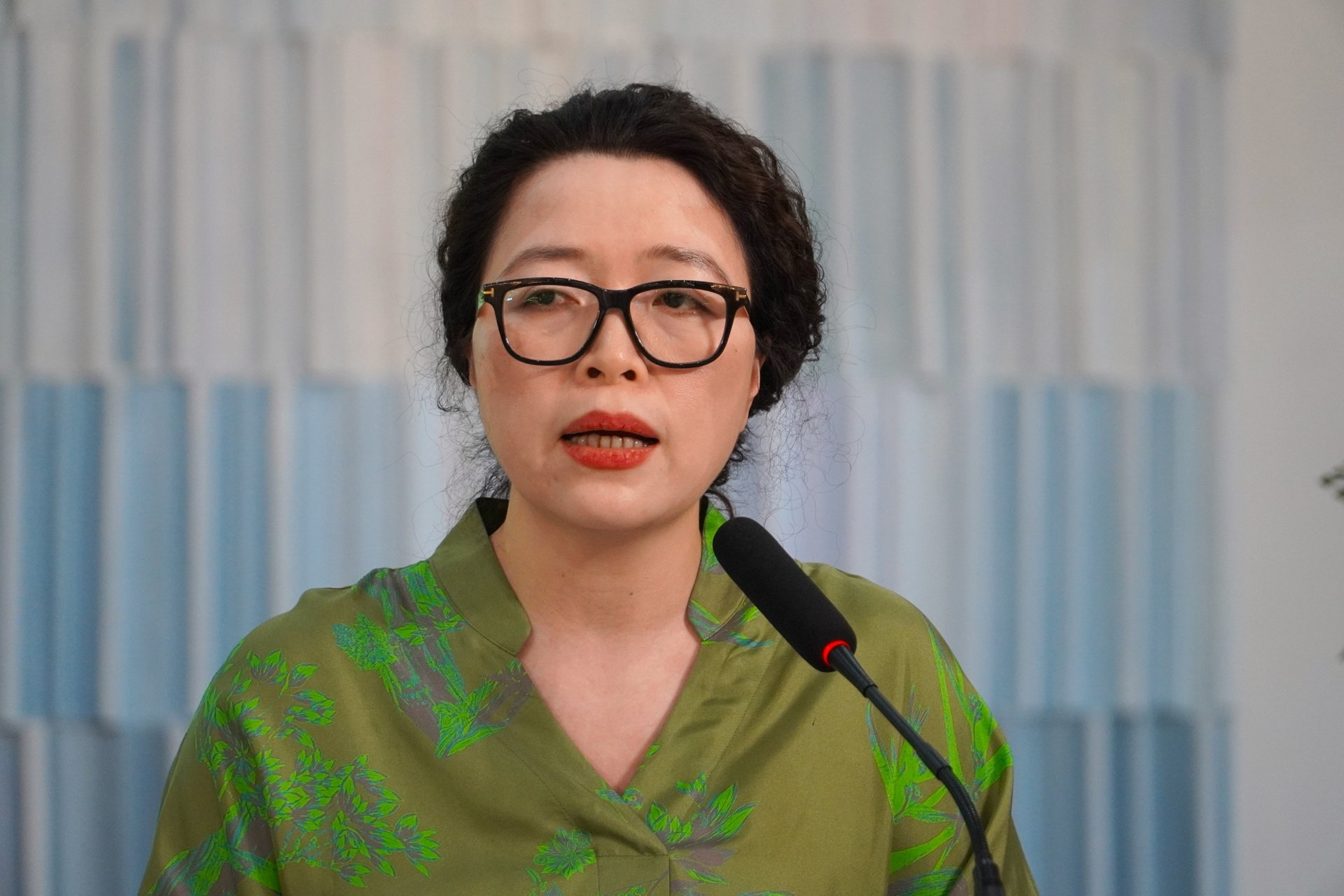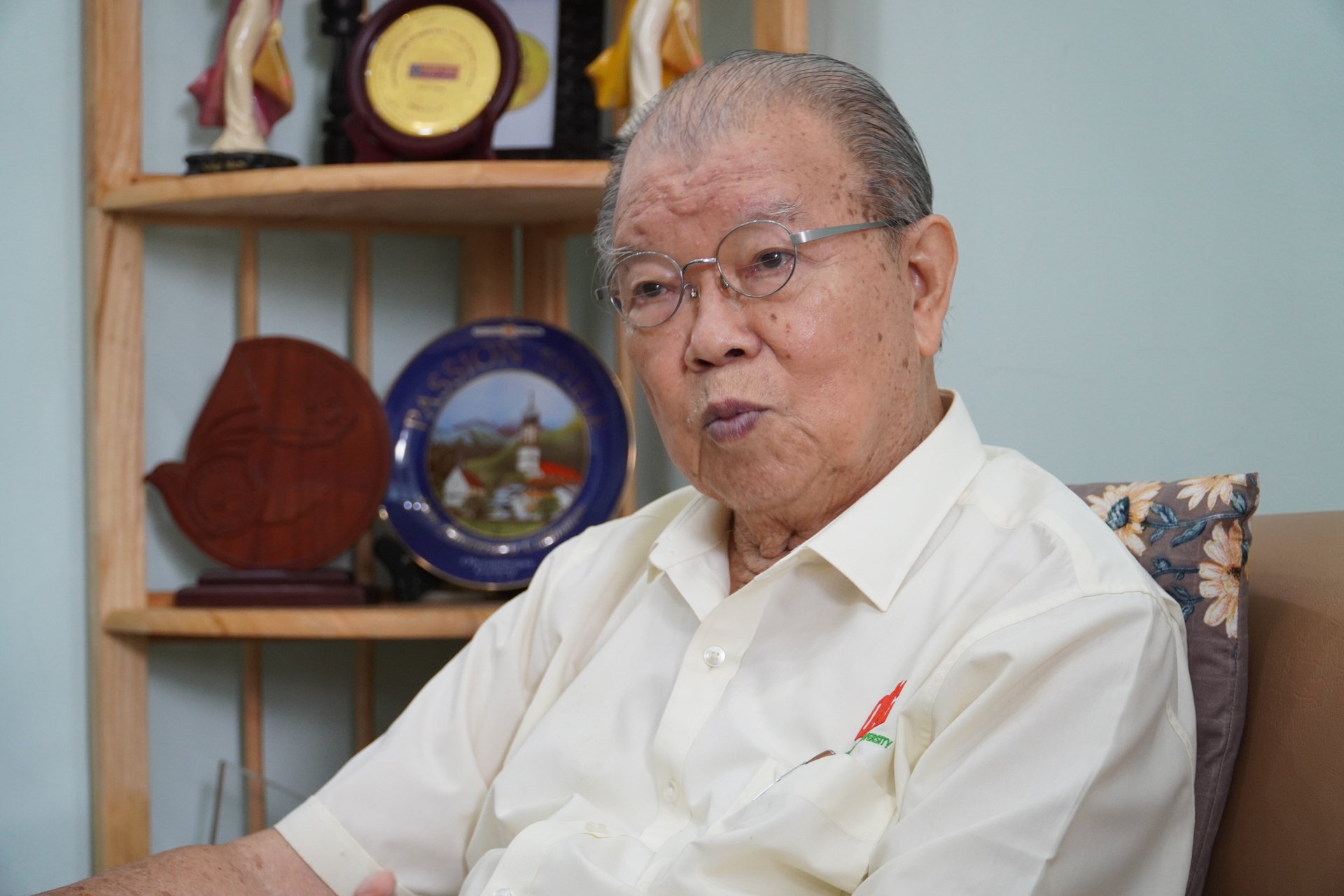May 29, 2025 | 16:09 GMT +7
May 29, 2025 | 16:09 GMT +7
Hotline: 0913.378.918
May 29, 2025 | 16:09 GMT +7
Hotline: 0913.378.918
Vietnam's rice exports have grown strongly in the past 10 years. In particular, in the first 6 months of 2023, Vietnam's rice exports rose to second place after India and higher than Thailand's.
In the first 6 months of the year, Vietnam's rice exporters have achieved their goals of selling all commodity rice to farmers at good prices, stabilizing the domestic market price, and contributing to ensuring the safety of national food security.

Nguyen Ngoc Nam, Chairman of Vietnam Food Association. Photo: Kim Anh.
Besides, the quality of Vietnamese rice now meets most of the world's markets. This is a good sign that achieved this result also thanks to the victory in the organization of rice production, such as crop structure, varieties, and application of scientific and technical advances to save costs.
Rice exporters need to implement stockpiling to ensure national food security strictly. The world situation has complicated developments. The Ministry of Industry and Trade needs to consider having a contract registration management mechanism to monitor the status of signing, fulfilling orders, and rice inventories of enterprises to have accurate macro policies.
Over the past, the Agricultural Sector Restructuring Project has been implemented very well. Thereby ensuring the big goals, including: Ensuring domestic consumption, consuming rice for farmers, exporting food in large quantities with high turnover, and accompanying development in the production chain.

Bui Thi Thanh Tam, General Director of Northern Food Corporation: (Vinafood 1). Photo: Kim Anh.
Currently, rice exporting and importing countries have significantly changed guidelines and policies in import and export. We need forecasts and predictions from afar to help businesses and localities prepare goods and negotiate exports effectively.
The price of rice increased very well, and farmers benefited, but it must be balanced, ensuring domestic consumption and the price must be stable. On the business side, we have also purchased a large amount of rice for farmers for export. This is a period of significant change. We want the business community to regularly exchange updates and analyze the market situation to maintain food security for farmers and businesses to develop sustainably.
Vietnam needs to recognize India's decision as the leading rice exporting power in the world, accounting for about 40% of the global rice trade market share. This decision will have a significant impact on the world rice market. The general psychology of rice-using countries will switch to buying rice from Vietnam and Thailand.

Economist Expert Tran Huu Hiep. Photo: Kim Anh.
The rice market is experiencing very fierce competition among exporting countries. The supply and demand of rice worldwide will be significantly changed and affected by weather, natural disasters, epidemics, etc. Against that background, we must calculate and solve two problems. The first is the immediate solution to manage rice exports. The second is the sustainable movement of the rice industry in long-term investment, adapting to the changes in the world rice market.
In the current rice export management, I think it is necessary to focus on the following issues:
The first is to firmly grasp and closely monitor developments in the world rice market to make purchasing decisions and sign contracts with partners.
The second is to arrange capital to organize the purchase of rice, especially to respond immediately to market movements when rice prices are high. Currently, the State Bank tends to reduce interest rates and has credit programs, so it is necessary to focus on supporting enterprises in purchasing, processing, and exporting.
The third is to improve the capacity and linkage and harmonize the interests of farmers, cooperatives, and enterprises producing, processing, and exporting rice.
The fourth is necessary to ensure the planning that the Ministry of Agriculture and Rural Development and the provinces of the Mekong Delta are deploying the rice material area of more than 1 million hectares specialized in high-quality cultivation to build the Vietnamese rice brand. That is the sustainable, long-term direction.
The fifth is necessary to continue to invest in the development of infrastructure, transportation, logistics, and agricultural infrastructure to ensure sustainable rice material areas.

Prof. Dr. Vo Tong Xuan, Honorary Rector of Southern Can Tho University. Photo: Kim Anh.
India is the top rice exporter in the world but mainly low-quality rice. In Vietnam, low-quality rice can currently be sold at a high price. For example, rice IR50404 in Australia and Japan are both very needed.
The surface of rice circulation in the international market has changed because India banned rice exports. Thailand also reduced exports. This is an opportunity for Vietnam's rice industry to rise with higher value and quality. Especially when the price of rice increases, this is an opportunity for rice farmers to be rewarded for their efforts over the past few decades.
The area adjacent to Cambodia (north of Kien Giang, An Giang, Dong Thap, Long An) is a food area for Vietnam, favorable for producing three rice crops/year. Next is the coastal zone. In the spirit of Resolution 120 of the Government on sustainable development of the Mekong Delta to adapt to climate change, freshwater must not be used wastefully to grow rice in the dry season. Instead, in the rainy season, rainwater can be used to grow rice, and saltwater can be used to raise shrimp when it stops raining.
Also, from this big resolution, some areas growing 3 rice crops/year have switched to fruit trees, bringing higher benefits to farmers without affecting food security.
Translated by Tu Quyen

(VAN) The mutual export of agrifood products between the European Union (EU) and the United Kingdom (UK) must occur again without certification, border controls or other red tape. This was agreed at the UK-EU summit.
/2025/05/22/5121-2-173645_677.jpg)
(VAN) NBSAP Tracker identifies strengths and areas for improvement in the National Biodiversity Strategy, based on each region’s priorities and capacities.

(VAN) The draft amendment to the Circular on rice export trading stipulates a periodic reporting regime for rice exporting enterprises.

(VAN) Dong Thap farmers attained an average profit margin of 64% during the summer-autumn 2024 crop (first season), while An Giang and Kien Giang farmers followed with 56% and 54%, respectively.

(VAN) As a doctoral student doing research on renewable energy and electrification at Harvard University, the author shares his musings on electricity, nature, and countryside memories.

(VAN) The decree on Extended Producer Responsibility (EPR) ensures transparent management and disbursement of support funds, avoiding the creation of a “give-and-take” mechanism.

(VAN) Hue City rigorously enforces regulations regarding marine fishing and resource exploitation, with a particular emphasis on the monitoring of fishing vessels to prevent illegal, unreported, and unregulated (IUU) fishing.